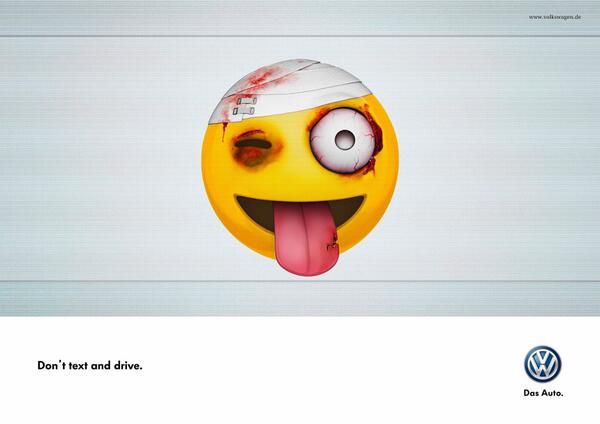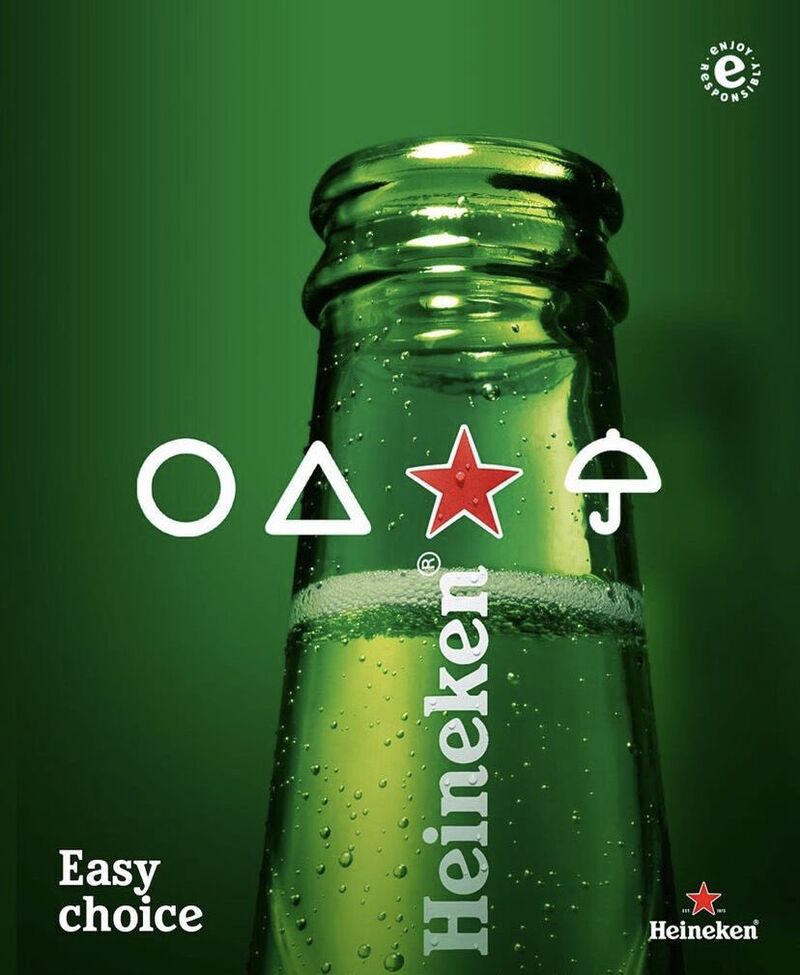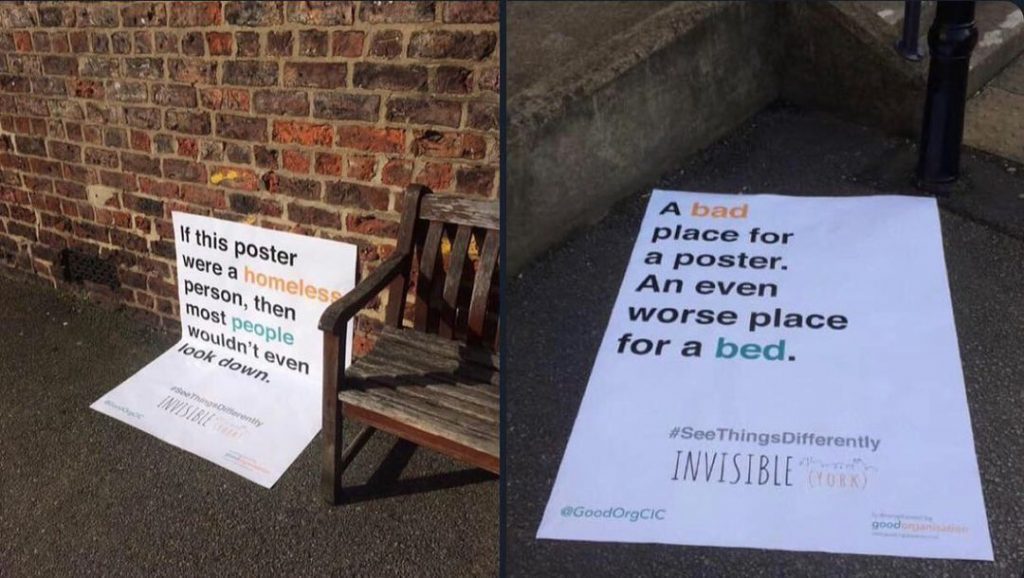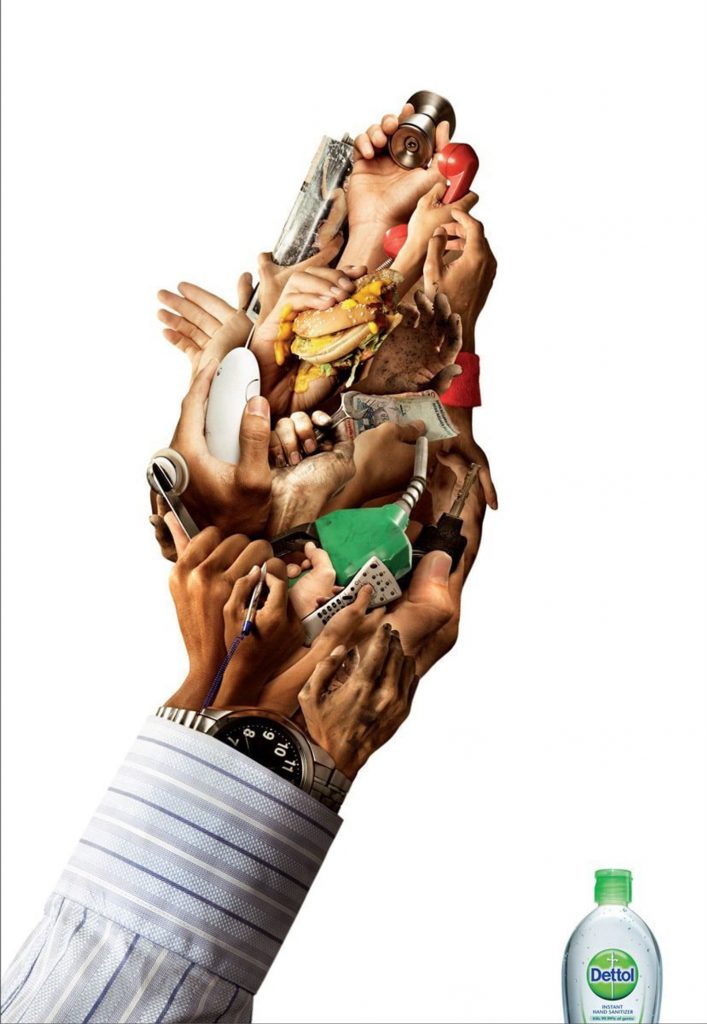
Author: David Greenwood
💎 We can’t stand a mismatch between our actions and thoughts (Benjamin Franklin Effect)
because we hate cognitive dissonance: we can’t stand a mismatch between our actions and thoughts. So if we find ourselves helping someone out, we’ll unconsciously adjust our feelings for them. After all, we don’t want to feel we’re valuing someone who doesn’t deserve it. In one key study, students won money in a contest; afterwards, some were asked to return it because, they were told, it was the hard-up researcher’s own cash. In a subsequent survey, that group liked the researcher significantly more than those who weren’t asked to give any money back.
The implications are striking. Don’t suck up to your boss – make demands. Don’t shower your friends with gifts – ask to borrow their stuff.
Excerpt from Help!: How to Become Slightly Happier and Get a Bit More Done by Oliver Burkeman
💎 A Tip for Writing in the Active, not the passive voice (by Zombies)
There’s a neat trick – first suggested, as far as I can discover, by the American academic Rebecca Johnson – for identifying a passive construction in case of doubt. Try adding ‘by zombies’ after the verb. If you can do so, you’re looking at the passive voice.
‘Everyone loves by zombies’, America’s Got Talent, is recognisably not English. ‘America’s Got Talent is loved by zombies’ is not only a grammatical sentence, but probably true.
One of the oldest and most persistent writer’s tips is that you should prefer the active to the passive voice; or, in its extreme form, that you should always avoid the passive.
Excerpt from: Write to the Point: How to be Clear, Correct and Persuasive on the Page by Sam Leith
♦️ Chanel No5 Harrods

💎 On exclamation marks (Like laughing at your own joke!)
‘Like laughing at your own joke,’ said F. Scott Fitzgerald of this most gaudy of punctuation marks. He had a point. Overusing exclamation marks makes you sound hectoring and overexcited. That idea of laughing at your own joke – of paying yourself a compliment – has been there from the beginning. When they arrived in the language in the fourteenth century, David Crystal tells us, they were called the ‘point of admiration’ – and later, the ‘admirative point’ and the ‘wonderer’. It’s since Dr Johnson that we’ve had ‘exclamation’ – shifting the emphasis from admiration to the expression of strong feeling.
Excerpt from: Write to the Point: How to be Clear, Correct and Persuasive on the Page by Sam Leith
♦️ Swiss Milk Makes You Strong

💎 Information isn’t interpreted neutrally, but in line with our existing opinions
The Power of Confirmation
Three scientists, Charles Lord, Lee Ross, and Mark Lepper, recruited forty-eight American undergraduates who either strongly supported the death penalty or strongly opposed it. They presented them with two scientific studies; one offered evidence regarding the effectiveness of capital punishment, and the other data showed its ineffectiveness. In reality, the studies had been fabricated. Lord, Ross, and Lepper had made them up, but the students did not know that. Did the students find the studies convincing? Did they believe that the data provided good evidence that should alter their minds? They did!
But only when the study reinforced their original view. Those students who strongly supported capital punishment thought the study that demonstrated its effectiveness was well conducted. At the same time, they argued that the other study was poorly executed and not compelling. Those who were originally against capital punishment assessed the studies the other way around. As a result, believers in the death penalty left the lab supporting capital punishment with more passion than ever, while those in opposition to it ended up opposing capital punishment with more zest than before.
Excerpt from: The Influential Mind: What the Brain Reveals About Our Power to Change Others by Tali Sharot
💎 How many marketers does it take to change a light bulb?
‘How many marketers does it take to change a light bulb? The answer is “Millennials”. Because the answer to every fucking question in marketing is “Millennials””
Excerpt from: How not to Plan: 66 ways to screw it up by Les Binet and Sarah Carter
♦️ WWF Terrifying

💎 Giving customers even an illusion of control can boost product preference
I designed an experiment to test this idea. It involved designing Converse shoes. First, I would invite volunteers into the lab and ask them to evaluate eighty different Converse shoes on a computer screen. Each shoe would be slightly different in color and design. Then, for each volunteer, I would divide all of the shoes into two groups: half the shoes would be assigned to the “create” group and half to the “just watch” group. For the forty “create” shoes, the volunteer would have to log on to the Converse website and use the special online tool there to recreate the exact same shoe. The Converse website used to have an application that allowed anyone to design their own shoe. Notice, however, that the design and colors of the shoes in this experiment were predetermined; the volunteers did not create their favorite design—they simply re-created a design we had already made. For the forty “just watch” shoes, I asked my volunteers to watch a video on the computer screen of the shoe being created. They would sit passively in front of the computer watching, rather than clicking buttons themselves. That was the only difference between the “create” shoes and the “just watch” shoes. When the volunteers were done, two hours later, they were asked to evaluate all the shoes again.
Similar to my oil painting saga, the volunteers liked the shoes they thought they had created two hours before better than the ones they remembered “just watching.”
Excerpt from: The Influential Mind: What the Brain Reveals About Our Power to Change Others by Tali Sharot
♦️ WWF Frightening

💎 Why saying you’re a sceptic or realist doesn’t communicate what’s intended
It’s worth being particularly careful of boastful self descriptions; or, worse, boastful self-descriptions that appear to be neutral or even self-deprecating. It’s the equivalent of giving yourself a nickname like ‘Dutch’ or ‘Ace’ and hoping it sticks. You are asking to be bullied. Some are obvious. If you describe yourself as a ‘maverick’, a ‘cynic’, a ‘reprobate’, a ‘provocateur’, a ‘wag’, or similar, you are on a sure course for others to apply less flattering descriptions to you.
But others are subtler: ‘sceptic’, ‘realist, “radical or “progressive’ are all essentially boasts masquerading as statements of fact. ‘Sceptic’ says: ‘I’m the sort of person who thinks critically about what I read or hear.’ Since everyone presumably aspires to do just that, you’re trying to say you’re cleverer than those around you. ‘Radical’ means nothing at all, in this context, except that the speaker thinks that there’s a particular disruptive bravery to his her political persona – which is a judgment for others to make.
Excerpt from: Write to the Point: How to be Clear, Correct and Persuasive on the Page by Sam Leith
💎 On the danger of only evaluating projects on what is easy to quantify
A question was given to a bunch of engineers about fifteen years ago: How do we make the journey to Paris better? They came up with a very good engineering solution, which was to spend £6 billion building completely new tracks from London to the coast and knocking about forty minutes off the 3.5 hour journey time. It strikes me as a slightly unimaginative way of improving a train journey to merely make it shorter. Now, what is the hedonistic opportunity cost of spending £6 billion pounds on railway tracks? Here’s a thought; what you could do is employ the world’s top male and female supermodels, pay them to walk the length of the train handing out free Château Pétrus for the entire duration of the journey. … At which point you’ll still have about £5 billion left in change, and people will ask for the trains to be slowed down.
Excerpt from: Transport for Humans: Are We Nearly There Yet? by Pete Dyson and Rory Sutherland
♦️ VW Don’t Text and Drive

💎 The same waiting time feels shorter if it’s occupied
Figure 11. Innovation and innervation: digital projections transform waiting into a remarkable art gallery at Gate 14 for Toerisme Vlaanderen.
Excerpt from: Transport for Humans: Are We Nearly There Yet? by Pete Dyson and Rory Sutherland
♦️ Nike A Bus is Allowed to Stop Here

💎 If you give people a sense of control (even an illusory one) they’re happier with their decisions
It is not only humans who like to choose: animals prefer to have a choice as well. In fact, they choose to choose even if having a choice does not change the outcome. If rats need to select between two paths that lead to food—one path is a straight line and the other subsequently requires them to select whether to go right or left—they choose the latter path. Pigeons do the same thing. Give a pigeon two options: the first is a button to peck that results in grain being dispensed, and the second is two buttons from which it needs to select one to peck in order to receive the same grain, and the bird will pick the option with two buttons. The pigeons quickly learn that the seeds are no different; yet they prefer the seeds that were obtained by making a choice.
Excerpt from: The Influential Mind: What the Brain Reveals About Our Power to Change Others by Tali Sharot
💎 We try and avoid negative information (a lesson in stock market trading)
Figure 5.2. People’s desire to know their own worth is related to market performance. The black line represents the S&P 500, and the gray line represents the number of times people logged on to their accounts to check on their stocks. When the market goes up, people are more likely to take a peek at the value of their holdings than when it goes down.
Excerpt from: The Influential Mind: What the Brain Reveals About Our Power to Change Others by Tali Sharot
♦️ Heineken Easy Choice

💎 If you are writing a list of three terms put the shortest first and the longest last for maximum impact
If not quite a ‘rule’, it’s at least a strong guideline for successful rhythm that you should put the shortest term in any list first and the longest last. This is the principle of climax underscoring the rising tricolon. ‘I am Scottish by aspiration, birth and choice’ has nothing of the drum-roll about it. ‘I will be fishing for cod, blue-fin tuna, the inedible but mighty basking shark, and the many-tentacled deep-sea octopus’ just, somehow, tends to sound better than ‘I will be fishing for the many-tentacled deep-sea octopus, blue-fin tuna, the inedible but mighty basking shark, and cod.’
Excerpt from: Write to the Point: How to be Clear, Correct and Persuasive on the Page by Sam Leith
♦️ Good Organisation A Bad Place for a Poster

💎 On reading your copy out loud and ‘where you falter, alter’
Peggy Noonan, who wrote speeches for Ronald Reagan has said: ‘Once you’ve finished the first draft of your speech – stand up and speak it aloud. Where you falter, alter.’ That applies especially to speeches, of course: in that case you’re trying to produce something that’s hard to stumble over when spoken aloud. Tongue-twisters such as ‘red lorry, yellow lorry’ are easier on the page than in the mouth. But it is also good advice to the prose writer. There is a developmental connection between reading aloud and reading silently – and there is a neurological one too.
Excerpt from: Write to the Point: How to be Clear, Correct and Persuasive on the Page by Sam Leith
💎 On our tendency to explain behaviour too much in terms of personality and not enough in terms of circumstances
The bias runs deep. Few of us, surely, think of ourselves as having a fixed, monochrome personality: we’re happy or sad, stressed or relaxed, depending on circumstances. Yet we stubbornly resist the notion that others might be similarly circumstance-dependent. In a well-known 1960s study, people were shown two essays, one arguing in favour of Castro’s Cuba and one against. Even when it was explained that the authors had been ordered to adopt each position based on a coin-toss – that their situation, in other words, had forced their hand readers still considered that the pro Castro author must be deep down, pro Castro and vice versa.
Excerpt from Help!: How to Become Slightly Happier and Get a Bit More Done by Oliver Burkeman
♦️ Pedigree A Dog Makes your Life Happier

💎 On how transient our beliefs can be
In a study entitled “After the Movies’, some crafty Australian researchers grilled people leaving the cinema about their views on politics and morality; they discovered that those leaving happy films were optimistic and lenient, while those leaving aggressive or sad ones were far more pessimistic and strict.
Excerpt from Help!: How to Become Slightly Happier and Get a Bit More Done by Oliver Burkeman
♦️ SOS Racism
💎 The friend of creative work is alertness, and nothing focusses your attention like stepping on to unfamiliar ground
In 1958, a young psychologist by the name of Bernice Eiduson began a long-term study of the working methods of forty mid-career scientists. For twenty years, Professor Eiduson periodically interviewed the scientists and gave them a variety of psychological tests, as well as gathering data on their publications. Some of the scientists went on to great success: there were four Nobel Prize winners in the group and two others widely regarded as Nobel-worthy. Several other scientists joined the National Academy of Sciences. Others had disappointing careers.
In 1993, several years after Bernice Eiduson’s death, her colleagues published an analysis of this study, trying to spot patterns. A question of particular interest was: what determines whether a scientist keeps publishing important work throughout his or her life? A few highly productive scientists produced breakthrough paper after breakthrough paper. How?
A striking pattern emerged. The top scientists switched topics frequently. Over the course of their first hundred published papers, the long-lived high-impact researchers switched topics an average of 43 times. The leaps were less dramatic than the ones Erez Aiden likes to take, but the pattern is the same: the top scientists keep changing the subject if they wish to stay productive.
Excerpt from: Messy: How to Be Creative and Resilient in a Tidy-Minded World by Tim Harford
💎 Anchoring – even when taken to ridiculous extremes – has an affect on people’s judgements
Psychologists Gretchen Chapman and Brian Bornstein tested this idea in a 1996 experiment, when Liebeck v. McDonald’s was much in the news. They presented eighty students from the University of Illinois, U.S.A., students with the hypothetical case of a young woman who said she contracted ovarian cancer from birth control pills and was suing her health care organization. Four groups each heard a different demand for damages: $100; $20,000; $5 million; and $1 billion. The mock jurors were asked to give compensatory damages only. Anyone who wants to believe in the jury system must find the results astonishing.
The jurors were amazingly persuadable, up through the $5 million demand. The lowball $100 demand got a piddling $990 average award. This was for a cancer said to have the plaintiff ‘almost constantly in pain… Doctors do not expect her to survive beyond a few more months.’
Excerpt from: Priceless: The Myth of Fair Value (and How to Take Advantage of It) by William Poundstone
♦️ Dettol Many Hands

💎 People lie on surveys (and in their Netflix queues) both consciously and unconsciously
Netflix learned a similar lesson early on in its life cycle: don’t trust what people tell you; trust what they do. Originally, the company allowed users to create a queue of movies they wanted to watch in the future but didn’t have time for at the moment. This way, when they had more time, Netflix could remind them of those movies. However, Netflix noticed something odd in the data. Users were filling their queues with plenty of movies. But days later, when they were reminded of the movies on the queue, they rarely clicked. What was the problem? Ask users what movies they plan to watch in a few days, and they will fill the queue with aspirational, highbrow films, such as black-and-white World War II documentaries or serious foreign films. A few days later, however, they will want to watch the same movies they usually want to watch: lowbrow comedies or romance films. People were consistently lying to themselves.
Excerpt from: Everybody Lies: Big Data, New Data, and What the Internet Can Tell Us About Who We Really Are by Seth Stephens-Davidowitz






























